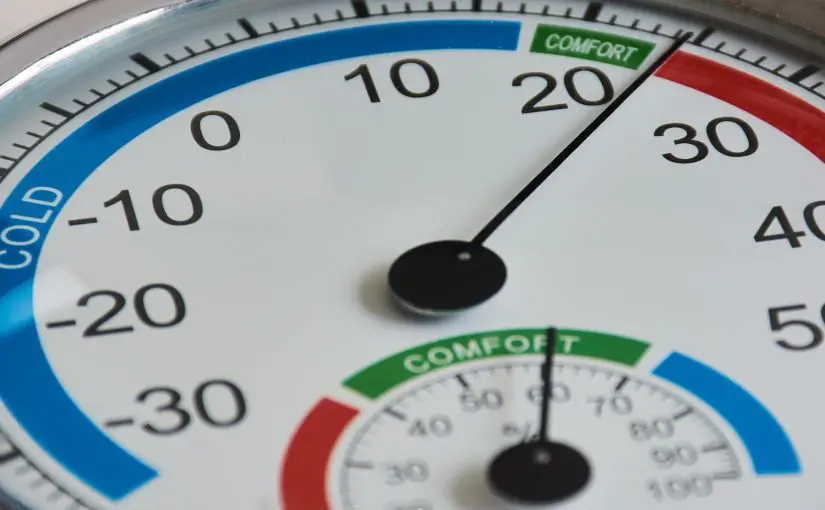Air conditioning is a must-have during the summer months, but did you know that there is an air conditioner dry mode that can reduce humidity?
Alternatively, dehumidifiers can also help regulate the humidity in your home.
In this article, we will explore the differences between air conditioner dry mode and dehumidifiers to help you decide which is best for your needs.
Table of Contents
Air Conditioner Dry Mode vs Dehumidifier
Air conditioner dry mode and dehumidifiers are two methods used to reduce humidity in indoor spaces.
While air conditioner dry mode is built into most modern air conditioners, standalone dehumidifiers may be more effective at reducing humidity in particularly humid environments.
When it comes to staying cool in the summer, air conditioning is a popular choice.
However, excess humidity can make it feel hotter than it actually is.
This is where air conditioner dry mode and dehumidifiers come in. Both are designed to reduce the humidity in the air, but they work in different ways.
Air Conditioner Dry Mode
Air conditioner dry mode, also known as dehumidifying mode, is a setting that can be found on most modern air conditioners.
It works by reducing the humidity in the air without significantly cooling the room.
The air conditioner circulates the air over the evaporator coils, which removes moisture from the air. The dry air is then released back into the room.
One of the advantages of air conditioner dry mode is that it doesn’t require any additional equipment, as it is built into your air conditioner.
However, it may not be as effective as a standalone dehumidifier, as it is only designed to reduce humidity and not eliminate it completely.
Dehumidifier
A dehumidifier is a standalone device that is specifically designed to reduce humidity in the air.
It works by drawing in the moist air and passing it over a cooling coil. This causes the moisture to condense, and the dry air is then released back into the room.
Dehumidifiers come in different sizes and capacities, so it’s important to choose one that is suitable for the size of your room.
Dehumidifiers can be advantageous as they are specifically designed to reduce humidity, which makes them more effective than air conditioner dry mode.
However, they can be noisy, and require regular maintenance, such as emptying the water tank and cleaning the filter.
 Air Conditioner Dry Mode vs Dehumidifier Comparison Chart
Air Conditioner Dry Mode vs Dehumidifier Comparison Chart
| Air Conditioner Dry Mode | Dehumidifier | |
|---|---|---|
| Purpose | Reduces humidity | Reduces humidity |
| Equipment | Built into air conditioner | Standalone device |
| Cooling | May not cool room | Does not cool room |
| Effectiveness | May not eliminate humidity completely | More effective at reducing humidity |
| Noise Level | Quiet | Can be noisy |
| Maintenance | Clean filters, annual servicing | Empty water tank, clean filter regularly |
| Suitable Situations | When cooling is also required | When humidity is main concern |
| Capacity | Dependent on air conditioner size | Dependent on device capacity |
When to Use Air Conditioner Dry Mode vs Dehumidifier
When deciding whether to use air conditioner dry mode or a dehumidifier, there are a few factors to consider.
If you have an air conditioner with a built-in dry mode, this may be sufficient for reducing humidity.
However, if you live in a particularly humid climate, a standalone dehumidifier may be more effective.
In situations where you want to cool the room as well as reduce humidity, air conditioner dry mode may be the better option.
However, if humidity is the main concern, a dehumidifier is likely to be more effective.
Maintenance and Care
Regardless of which option you choose, it’s important to keep it well-maintained to ensure it operates effectively.
For air conditioner dry mode, ensure that the filters are cleaned regularly and that the unit is serviced annually.
For dehumidifiers, regularly empty the water tank and clean the filter to prevent the buildup of mold and bacteria.
 Conclusion: Air Conditioner Dry Mode vs Dehumidifier
Conclusion: Air Conditioner Dry Mode vs Dehumidifier
When it comes to reducing humidity, air conditioner dry mode and dehumidifiers are both viable options.
Air conditioner dry mode is built into most modern air conditioners, but may not be as effective as a standalone dehumidifier.
Dehumidifiers are specifically designed to reduce humidity, but require regular maintenance.
Ultimately, the choice between air conditioner dry mode and dehumidifiers will depend on your specific needs and circumstances.
FAQ
What is the difference between air conditioner dry mode and a dehumidifier?
Air conditioner dry mode is a setting on most air conditioners that reduces humidity without significantly cooling the room.
A dehumidifier is a standalone device designed specifically to reduce humidity.
Which one is more effective at reducing humidity?
Dehumidifiers are more effective at reducing humidity as they are specifically designed for this purpose.
Air conditioner dry mode may not eliminate humidity completely.
Can air conditioner dry mode cool a room?
Air conditioner dry mode may not cool a room significantly, as it is designed to reduce humidity rather than temperature.
If cooling the room is a concern, an air conditioner in standard mode or with a separate cooling unit may be more appropriate.
Are there any maintenance requirements for air conditioner dry mode and dehumidifiers?
Air conditioner dry mode requires regular filter cleaning and annual servicing to maintain its effectiveness.
Dehumidifiers require regular emptying of the water tank and cleaning of the filter to prevent the buildup of mold and bacteria.
Which one should I choose for my indoor space?
If you live in a particularly humid environment, a dehumidifier may be the better choice.
If you only need to reduce humidity and don’t need additional cooling, air conditioner dry mode may be sufficient.

